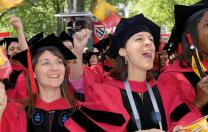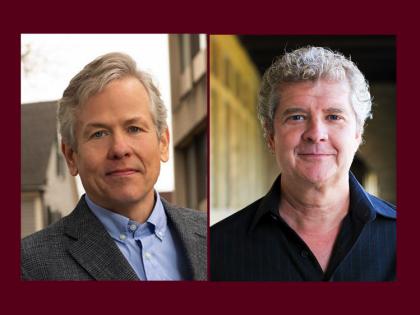President Derek Bok used his “last occasion to report to the alumni” to “share some parting reflections on the challenges for this University and others like it.” He began with a moment of personal reflection: “ I realize that more than 55 years have elapsed since I first laid eyes on Harvard as an entering Law School student. I remember coming across a bridge in a top-down canary yellow Chevy convertible, fresh from southern California and ready to scale the heights of legal education.” Bok then outlined five subjects facing the modern university, from “whom we should be educating” and “how international American higher education should become” to “how to make the most of opportunities in science” and how universities can best “nurture and inspirit the humanities.” The second of the five questions Bok posed concerned a subject especially dear to his heart as an educator.
How can we best help students to learn?…Technology offers novel ways of teaching whose effectiveness needs to be tested and explored. Advances in cognitive psychology suggest innovative ways of helping students learn more and retain more. New techniques of measurement can help us determine how much progress our students are really making. And these are all promising developments. The question is whether universities will make the most of it. For as we know, academic culture is remarkably resistant to seeking new ways of improving teaching and learning. And so in this environment, methods of instruction change rather slowly.
See also: Full text, audio
But meanwhile there are signs that the public is growing restive. Outside our walls, public officials and voters who elect them are urging universities to demonstrate just how much undergraduates are progressing. Growing competition from abroad is pressing us to do a better job of preparing our students. And so the challenge now is to overcome our inertia and recognize that we will never improve our instruction very much, unless we discover how much our students are learning so that we can discover where our weaknesses are and experiment with new ways of helping to achieve our goals better. And Harvard, of course, should be a leader in making that happen.








